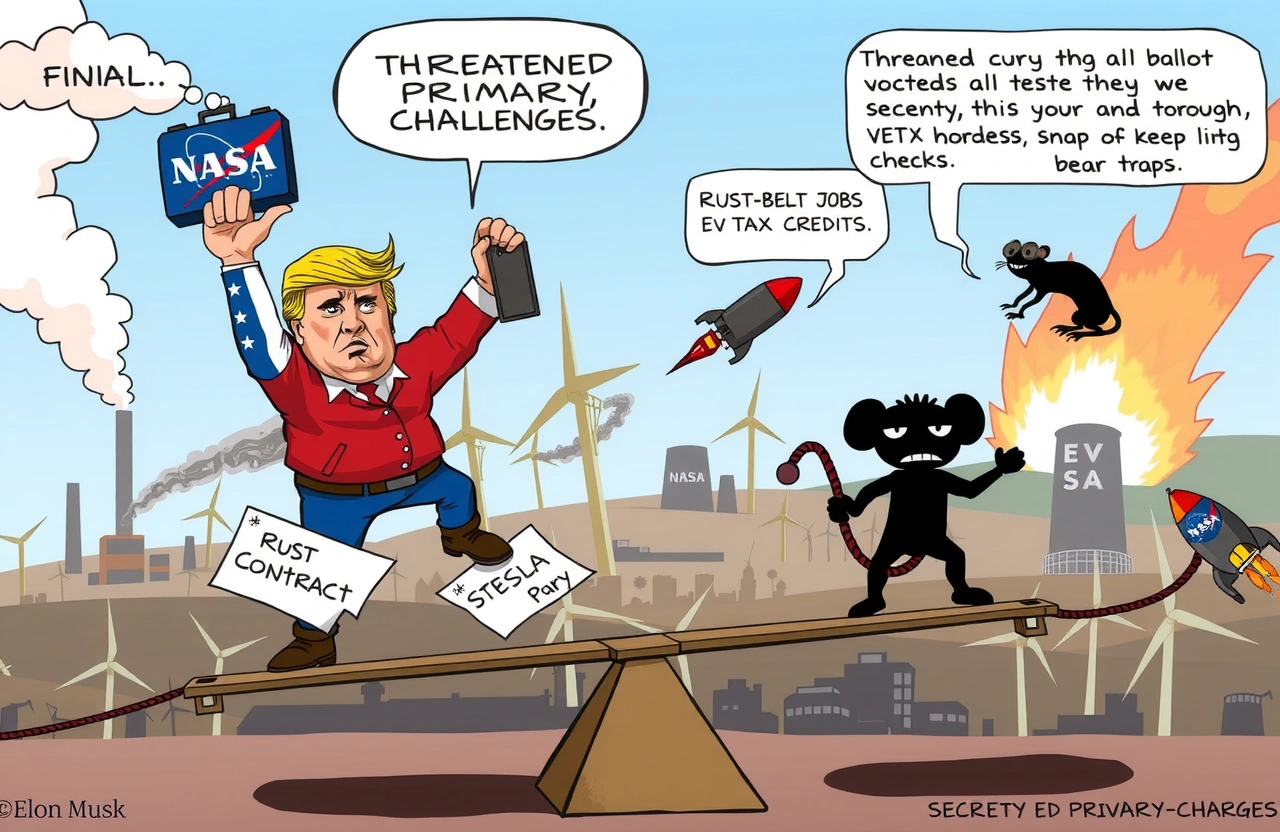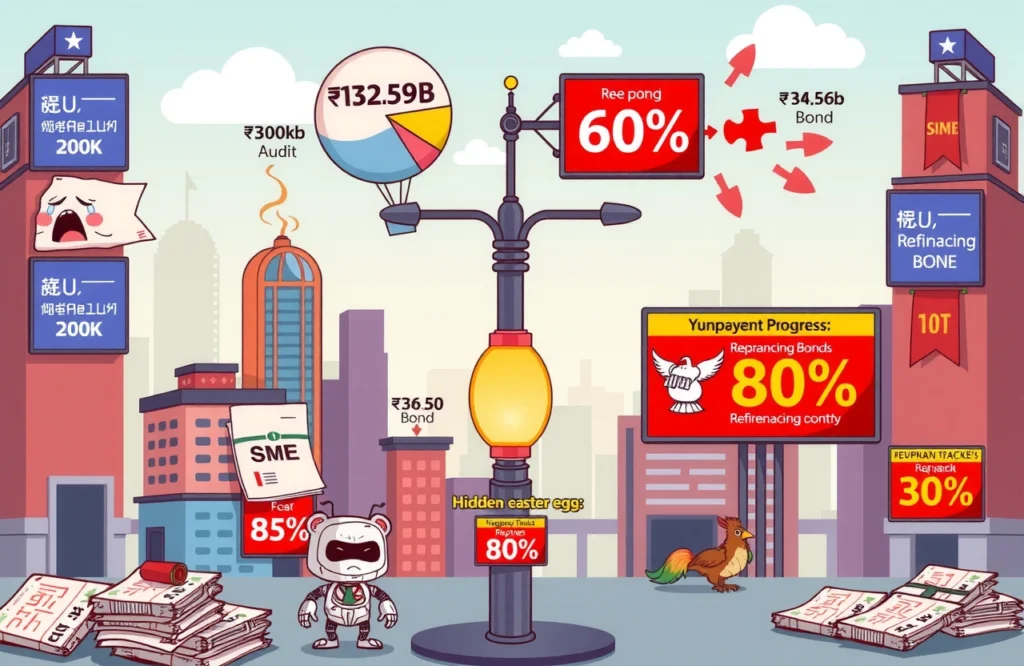The Billionaire Duel Resumes
A venomous late-night Twitter exchange between Donald Trump and Elon Musk has reignited their battle over the “Big and Beautiful” spending bill, revealing fundamental differences between political calculations and business priorities. When Musk threatened primary challenges for supporting Republicans, Trump shot back with hints about canceling SpaceX contracts and suggested Tesla’s founder “might have to shut up shop and return to South Africa.” This public spat exposes how Trump’s political arithmetic – prioritizing Rust Belt workers over tech elites – collides with Musk’s commercial calculus centered around NASA contracts and electric vehicle subsidies. With billions in government contracts hanging in the balance, this high-stakes conflict demonstrates how political imperatives can override even the most influential business interests.
Decoding the ‘Big and Beautiful’ Controversy
The Legislation That Divided Allies
The proposed “Big and Beautiful” Act includes unprecedented debt ceiling increases and spending measures that contradict traditional Republican fiscal principles. Musk publicly condemned the bill as “debt enslavement,” directly challenging Trump’s allies in the Senate. Public records show this political challenge coincides with Tesla intensifying lobbying against provisions:
– Slashing tax credits for electric vehicle buyers
– Restricting subsidies for battery manufacturing
– Cutting charging infrastructure grants
These elements directly impact Tesla’s market position despite Musk’s claims his opposition stems purely from fiscal conservatism.
The Escalation Timeline
Early tensions emerged in May 2023 when anonymous sources revealed Musk felt “hurt” by Trump’s disregard for his concerns. After a temporary truce, hostilities flared anew during June 30th Senate votes:
1. Musk tweets threats about defeating Republicans in primaries
2. Announces intent to form “America Party” if bill passes
3. Trump counters with DOGE contract threats
4. President mocks electric vehicles: “Not everyone needs EVs!”
This progression demonstrates how conflicting political vs business calculations derailed what was once a mutually beneficial alliance.
Trump’s Political Playbook
Rust Belt Over Silicon Valley
Trump consistently prioritizes blue-collar constituencies concentrated in Midwestern swing states – a fundamental political calculation requiring support for legacy industries. Carnegie Endowment fellow Douglas Paal (包道格) explains: “The carbon-intensive manufacturing sector delivers votes where Trump needs them most.” This echoes Trump’s tweeted assertion about EVs: they simply don’t resonate with his base.
The Loyalty Imperative
Administration insiders reveal NASA administrator nominee Jared Isaacman (马斯克支持的艾萨克曼) failed confirmation over doubts about his dedication to Trump’s agenda – a pattern seen in personnel screenings:
| Position | Preferred Candidate | Outcome | Reasoning |
|———-|———————|———|———–|
| NASA Administrator | Jared Isaacman | Withdrawn | Questioned loyalty |
| DOGE Secretary | Robert Smith | Confirmed | Established GOP connections |
| FAA Liaison | Jane Carter | Rejected | Musk associations |
Presidential Personnel Director Sergio Gore personally intervened against Isaacman’s appointment, perceiving SpaceX influence as encroaching on White House prerogatives.
Musk’s Commercial Calculus
The $275 Million Bet Gone Wrong
SpaceX and Tesla contributions exceeding $275 million to Trump-aligned candidates constituted strategic investments anticipating specific returns:
– Lucrative NASA contracts
– Sustained EV subsidies
– Regulatory approvals for Starlink aviation applications
When Trump scrapped subsidies he previously championed, he undermined Musk’s expected ROI.
The Battle Beyond Electric Vehicles
Though Musk spotlighted fiscal principles when opposing the bill, lobbying disclosures reveal targeted advocacy:
– SpaceX pushed FAA to adopt Starlink for air traffic control
– Tesla sought EV voucher extensions
– Neuralink advocated relaxed neurotech regulations
FAA rejection of Starlink aviation applications preceded Musk’s Twitter outbursts by 72 hours, suggesting interconnected frustrations.
The Loyalty Dichotomy
Why Others Remain Silent
Marco Rubio and JD Vance demonstrate deference despite policy disagreements – a contrast to Musk’s rebellion. Their continuing support reflects pragmatic political calculations considering Trump holds 60.7% GOP primary support according to June 2023 Fox News polls. Treasury Secretary Steven Mnuchin summarizes establishment thinking: “Sometimes losing the battle preserves standing to win bigger wars.”
Musk’s Entrepreneurial Mindset
Unlike career politicians, Musk evaluates Washington through Silicon Valley’s VC framework:
– Investments must yield rapid returns
– Bad bets should be abandoned
– Disruptive moves celebrated
Trump administration veterans note Musk fundamentally misunderstands political timelines: “He expects ROIs in quarters when politics operates in election cycles.”
The Third-Party Mirage
Musk’s threat to create the “America Party” faces structural barriers that reveal business-instinct limitations versus political realities:
– Ballot access restrictions in 41 states
– $800M+ estimated startup costs
– Demographics show 91% of Tesla buyers donate Democratic, yet 73% SpaceX workers lean Republican
Former NY Governor David Paterson warns: “Third parties attract attention but incumbents govern.” Without established political operators, Musk’s venture risks becoming another vanity project.
Paths Forward
The Appeasement Option
Following Musk’s May apology, sources confirm Trump suggested SpaceX could still receive NASA moon contracts – proving reconciliation produces results. White House correspondents note Trump favors dramatic public confrontations preceding private resolutions: “He admires fighters who ultimately submit.”
Standing Firm
Maintaining opposition risks retaliation:
– Cancellation of $4.6B SpaceX resupply contracts
– FTC investigations into Tesla driver claims
– Mineral sourcing requirements crippling battery production
Former Apple lobbyist James Pinkerton cautions: “No company withstands federal agencies weaponized against them.”
The Reckoning Horizon
Political calculations and business imperatives converge in critical August deadlines:
– FAA renews SpaceX Starship launch licenses on August 15
– Senate votes final subsidies package August 22
– Treasury EV tax credit changes effective September 1
While Musk needs contracts more than Trump needs Musk, both men require wins before 2024 campaigns intensify. Political adviser Peter Navarro observes: “Trump modified tariffs when business screams grew loud enough – Musk’s mistake is screaming too quietly.” Despite public hostilities, Trump-Musk cooperation remains likely because abandoned alliances serve neither’s core objectives long-term.




